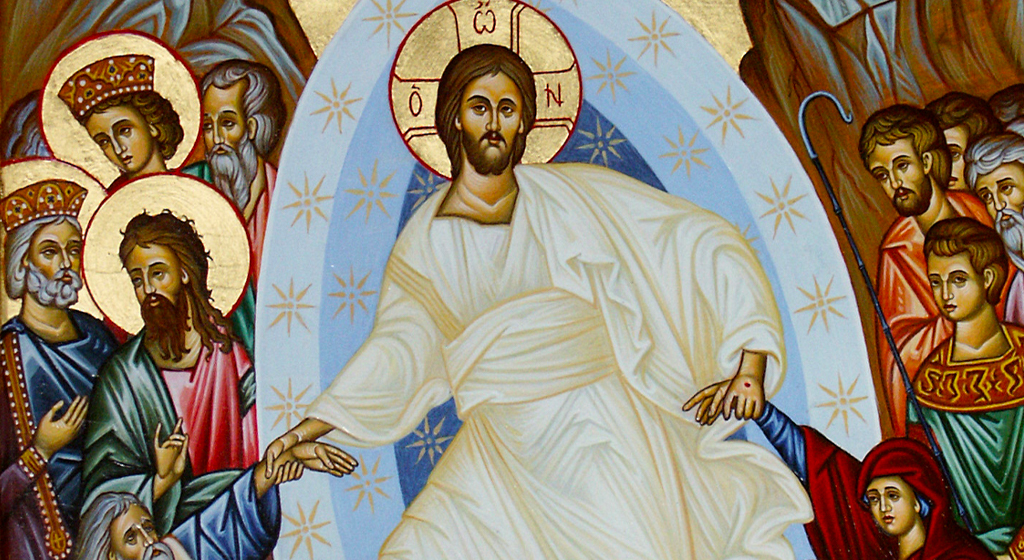Liturgy of the Sunday
Fourteenth Sunday of Ordinary Time
Remembrance of Athenagoras (+1972), patriarch of Constantinople, father of ecumenical dialogue.
First Reading
Ezekiel 2,2-5
As he said these words the spirit came into me and put me on my feet, and I heard him speaking to me. He said, 'Son of man, I am sending you to the Israelites, to the rebels who have rebelled against me. They and their ancestors have been in revolt against me up to the present day. Because they are stubborn and obstinate children, I am sending you to them, to say, "Lord Yahweh says this." Whether they listen or not, this tribe of rebels will know there is a prophet among them.
Second Reading
2 Corinthians 12,7-10
Wherefore, so that I should not get above myself, I was given a thorn in the flesh, a messenger from Satan to batter me and prevent me from getting above myself. About this, I have three times pleaded with the Lord that it might leave me; but he has answered me, 'My grace is enough for you: for power is at full stretch in weakness.' It is, then, about my weaknesses that I am happiest of all to boast, so that the power of Christ may rest upon me; and that is why I am glad of weaknesses, insults, constraints, persecutions and distress for Christ's sake. For it is when I am weak that I am strong.
Reading of the Gospel
Alleluia, alleluia, alleluia
Yesterday I was buried with Christ,
today I rise with you who are risen.
With you I was crucified;
remember me, Lord, in your kingdom.
Alleluia, alleluia, alleluia
Mark 6,1-6
Leaving that district, he went to his home town, and his disciples accompanied him. With the coming of the Sabbath he began teaching in the synagogue, and most of them were astonished when they heard him. They said, 'Where did the man get all this? What is this wisdom that has been granted him, and these miracles that are worked through him? This is the carpenter, surely, the son of Mary, the brother of James and Joset and Jude and Simon? His sisters, too, are they not here with us?' And they would not accept him. And Jesus said to them, 'A prophet is despised only in his own country, among his own relations and in his own house'; and he could work no miracle there, except that he cured a few sick people by laying his hands on them. He was amazed at their lack of faith. He made a tour round the villages, teaching.
Alleluia, alleluia, alleluia
Yesterday I was buried with Christ,
today I rise with you who are risen.
With you I was crucified;
remember me, Lord, in your kingdom.
Alleluia, alleluia, alleluia
Homily
"Where did this man get all of this?" The inhabitants of Nazareth wonder after listening to Jesus. Certainly, if, among many others, they had remembered the words addressed to Moses: "The Lord your God will raise up for you a prophet like me from among your own people; you shall heed such a prophet "(Deut 18:15), if they had remembered them, they would have understood that those words came from the Lord. It is in this horizon that faith is placed: accepting the words of preaching as authoritative, important words for one's own life. The Apostle Paul reminded the Romans: "Faith comes from what is heard" (Rom 10:17). But the people of Nazareth did not want to listen to Jesus. They stopped at what they already knew about him.
The evangelist writes sadly: "And they took offence at him."
This scandal is the scandal of the incarnation. The Lord, in fact, chose to save humankind by sending his Son, who "Though he was in the form of God... emptied himself, taking the form of a slave, being born in human likeness" (Phil 2:6-7). It is the mystery that we contemplate from Christmas in that child to Golgotha in the Crucified One. And it is also the scandal of the Church - the body of Christ throughout history - which, even with all its weakness and paucity, is sent by Jesus to communicate the Gospel of love to the ends of the earth, in the many Nazareth of this world. God does not make use of people out of the ordinary, but of men and women who entrust themselves to him; and he does not present himself with prodigies or words of pride, but with the simple preaching of the Gospel and the miracles of charity. The preached Gospel and lived charity are signs of God's presence acting in history, transforming the world by freeing it from evil.
We know well how little this Gospel logic is accepted by the common mentality (of which we are all children). There is always a gap between the Gospel of love and the mentality of this world. In Nazareth Jesus experienced this directly. That is why he bitterly notes, "Prophets are not without honour, except in their hometown, and among their own kin, and in their own house."
The evangelist notes that in Nazareth Jesus could not perform miracles; it is not that he did not want to, "he could not." His fellow citizens would have liked Jesus to work wonders that would amaze, but they did not understand that it was not a question of performing wonders or magic in the service of their own fame. The miracle is God's answer to those who stretch out their hand and ask for help. None of those who heard him stretched out their hand. In Nazareth Jesus could only heal a few sick people: those few who called for help as he passed by. Let us also stand beside those sick people who stood outside and asked the young prophet passing by for help. We will be healed together with them.
